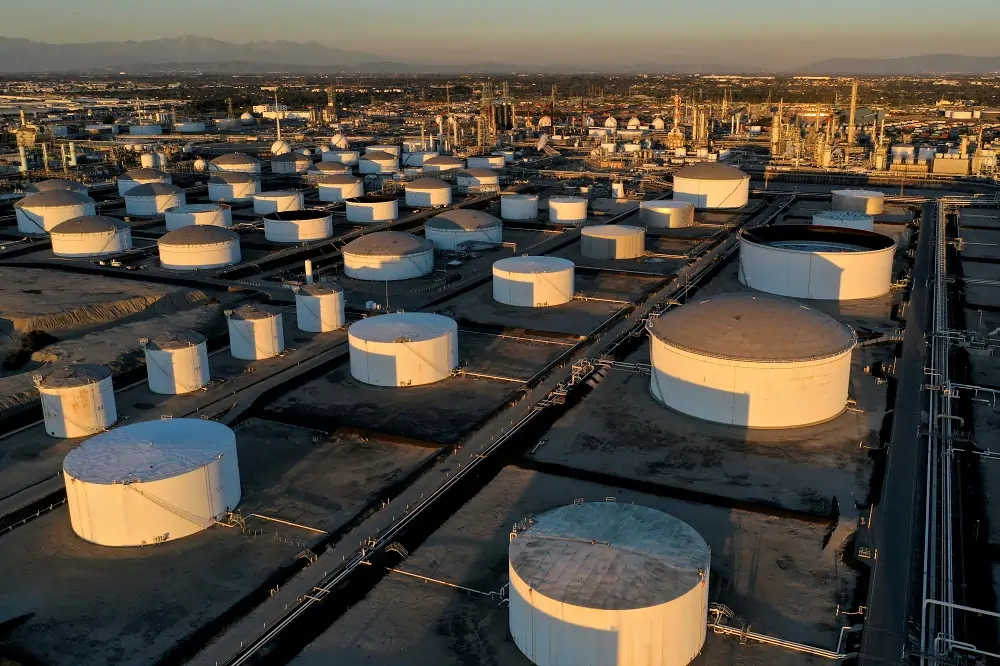
By Laila Kearney
NEW YORK (Reuters) -Oil prices were up on Wednesday on falling crude inventories in the United States, whiles the market cautiously awaited rate cut details from the Federal Reserve.
Crude inventories fell by 1.6 million barrels to 417.5 million barrels in the week ending Sept. 13, the Energy Information Administration (EIA) said, compared with analysts’ expectations in a Reuters poll for a 500,000-barrel draw. Gasoline and distillate inventories, meanwhile, rose last week.
Brent crude futures for November rose 11 cents, or 0.2%, at $73.81 a barrel at 11:22 a.m. EDT (1522 GMT). U.S. crude futures for October gained21 cents, or 0.3%, to $71.40.
While the EIA’s report was more supportive of oil prices than Tuesday’s American Petroleum Institute figures, investors likely considered the crude drawdown to be affected by last week’s hurricane Francine, a short-lived event, said Bob Yawger, director of energy futures at Mizuho bank.
“It’s a hurricane report to a certain degree,” said Yawger, who added that a slowdown in crude input to refineries last week kept prices from moving higher.
The Federal Reserve is expected to make its first interest rate cut in more than four years at 1800 GMT, with markets pricing in a 63% chance of a 50 basis-point reduction.
“Probably the uncertainty of the magnitude of the likely Fed rate cut later today is also keeping investors cautious,” said UBS analyst Giovanni Staunovo.
Oil found some support from risks of increased violence in the Middle East disrupting supply after Hezbollah accused Israel of attacking the militant group with explosive-laden pagers in Lebanon. Hezbollah promised to retaliate against Israel, whose military declined to comment on the blasts.
Brent has staged a recovery since falling below $70 to its lowest since December 2021 on Sept. 10. It faces resistance at around $75 due to weak global refinery margins that signal sluggish demand, he added.
“The end of peak summer demand and a negative shift in traders’ sentiment have contributed to the price drop, though potential conflicts in the Middle East still pose a risk of supply disruptions,” said Mazen Salhab, Chief Market Strategist MENA at BDSwiss.
(Reporting by Laila Kearney in New York, Alex Lawler in London and Arunima Kumar in Bengaluru; Additional reporting by Yuka Obayashi and Sudarshan Varadhan; editing by Jason Neely and David Evans)

